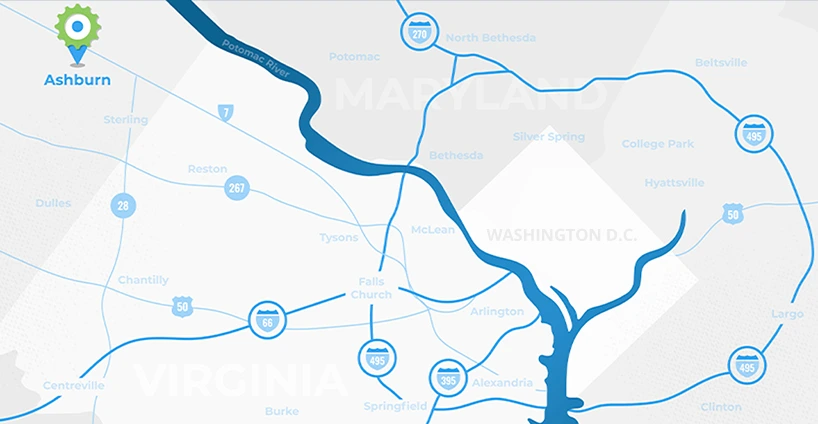Unlocking Creative Digital Agency Services for Your Brand

Learn how a creative digital agency can transform your brand through strategic web design, UX optimization, and effective digital marketing.
To stand out in today's rapidly evolving digital landscape, businesses require a comprehensive suite of creative digital agency services, in addition to a website.
A creative digital agency specializes in leveraging innovative design, strategic planning, and cutting-edge technology to enhance your brand's online presence and drive measurable results.
Whether you're a startup or an established enterprise, partnering with a creative digital agency can offer you tailored solutions that align with your unique business goals.
These services typically encompass custom website design, user experience (UX) optimization, search engine optimization (SEO), social media marketing, and branding. Each element plays a crucial role in crafting a cohesive digital strategy that not only attracts but also engages and retains your target audience.
For instance, custom website design ensures that your site is not only visually appealing but also functional and user-friendly. UX optimization focuses on creating seamless user journeys, enhancing satisfaction and loyalty.
Meanwhile, effective SEO strategies improve your website's visibility on search engines, driving organic traffic and increasing your reach. Social media marketing helps in building and nurturing relationships with your audience across various platforms, while strong branding establishes your identity and differentiates you from competitors.
Curious about how these services can elevate your business? Schedule a free marketing or website consult and get your free website grade! Our experts at ImageWorks Creative are ready to help you unlock your brand's potential.
Benefits of Hiring a Creative Digital Agency

Working with a creative digital agency has many benefits that can help your business beyond just visual design. These agencies offer a team of experts skilled in digital marketing, design, and technology to help you succeed. This collective expertise ensures that every facet of your online presence is optimized for maximum impact.
One of the primary benefits is the time and cost-efficiency that comes with hiring a creative digital agency. You can trust one agency to handle all your digital needs.
This includes website design, development, SEO, and social media marketing. Instead of dealing with multiple vendors or doing tasks yourself. This consolidation not only streamlines processes but also reduces overhead costs associated with hiring and training in-house staff.
Furthermore, creative digital agencies stay abreast of the latest trends and technologies in the digital realm. Your business will stay ahead by using new ideas that help you compete better. Agencies stay up-to-date with SEO and analytics to make sure your strategies work well.
Additionally, the creative insights provided by such agencies can transform your brand's identity and messaging. They bring a fresh perspective that can revitalize your marketing efforts, making your brand more appealing and relatable to your target audience. The result is a more cohesive and compelling brand narrative that resonates across all digital platforms.
Ultimately, hiring a creative digital agency enables your business to focus on what it does best, while the agency handles the complexities of the digital world. This partnership fosters growth, innovation, and sustained success in an increasingly digital marketplace.
Custom Website Design for Brand Success
A custom website design is a cornerstone of brand success in today's digital landscape. Unlike templated solutions, a custom design is tailored to meet the specific needs and goals of your business, ensuring a unique and memorable online presence. This personalized approach not only sets your brand apart from competitors but also enhances user experience and engagement.
One of the most significant advantages of custom website design is its ability to reflect your brand's identity accurately. From the color scheme and typography to the layout and imagery, every element can be customized to align with your brand's aesthetics and values. This consistency fosters brand recognition and trust, which are crucial for building a loyal customer base.
Moreover, custom websites are designed with scalability in mind. As your business grows, your website can evolve without the limitations often encountered with pre-made templates. Whether you need to add new features, expand your product offerings, or integrate advanced functionalities, a custom design provides the flexibility to adapt to your changing needs seamlessly.
Another key benefit is the enhanced performance that comes with a custom website. These sites are built with clean, efficient code, which translates to faster loading times and a smoother user experience. This optimization not only improves your site's SEO rankings but also reduces bounce rates, keeping visitors engaged and more likely to convert.
Additionally, custom website designs incorporate robust security measures tailored to your specific requirements. This proactive approach helps protect sensitive data and ensures compliance with industry standards, providing peace of mind for both you and your customers.
In essence, investing in a custom website design is an investment in your brand's future. It creates a strong foundation for digital success, enabling you to connect with your audience more effectively and achieve your business objectives.
Enhancing User Experience (UX) for Engagement

Enhancing user experience (UX) is pivotal for driving engagement and fostering lasting relationships with your audience. An excellent UX design ensures that your website is not only visually appealing but also intuitive and easy to navigate, which significantly impacts user satisfaction and retention.
A well-executed UX design begins with a deep understanding of your target audience. By conducting thorough user research and creating detailed personas, designers can identify the needs, preferences, and pain points of your users. This insight informs the design process, ensuring that every element of the website caters to the user's journey.
One of the key aspects of enhancing UX is the creation of a seamless navigation structure. Users should be able to find the information they need with minimal effort, which means organizing content logically and providing clear, straightforward pathways. Using breadcrumb trails, easy menus, and clear calls-to-action helps users navigate the site quickly and effectively.
Another critical component is responsive design. With the increasing use of mobile devices, it's crucial that your website performs well across all screen sizes and resolutions. A responsive design adapts to different devices, providing a consistent and satisfying user experience whether accessed on a desktop, tablet, or smartphone.
Visual hierarchy also plays a vital role in UX. By strategically using size, color, and spacing, designers can draw attention to the most important elements on a page. This not only enhances readability but also helps users quickly understand and interact with your content.
Furthermore, incorporating interactive elements like animations, hover effects, and micro-interactions can make the user experience more engaging and enjoyable. However, these should be used judiciously to avoid overwhelming users and detracting from the main content.
Finally, usability testing is crucial for refining UX. By observing real users as they interact with your website, designers can identify issues and areas for improvement. This iterative process ensures that the final product is both user-friendly and effective in achieving your business goals.
By prioritizing user experience, you create a website that not only attracts visitors but also keeps them coming back. A superior UX design is a powerful tool for increasing engagement, driving conversions, and ultimately, growing your brand.
Effective Digital Marketing Strategies

In today's competitive world, businesses need to use effective digital marketing strategies to enhance their online visibility and expand. This is crucial for any business looking to succeed in the online market.
By implementing strong digital marketing tactics, businesses can reach a wider audience and attract more customers. Ultimately, utilizing these strategies can lead to increased growth and success for the business. A good digital marketing strategy helps you connect with your audience, boost brand visibility, and see clear results.
The cornerstone of any successful digital marketing strategy is a well-designed website. Your website serves as the central hub for all your online marketing efforts. It needs to be optimized for both search engines and user experience, ensuring that visitors find it easy to navigate and engaging.
Search Engine Optimization (SEO) is essential for improving your website's visibility in search engine results pages (SERPs). By optimizing your site with relevant keywords, meta tags, and high-quality content, you can attract organic traffic and improve your rankings. Regularly updating your content and building backlinks from reputable sources further strengthens your SEO efforts.
Content marketing is another powerful strategy. By creating and sharing valuable, relevant content, you can attract and retain a clearly defined audience. Blog posts, articles, infographics, and videos are effective content formats that can address your audience's pain points and provide solutions. Quality content not only drives traffic but also establishes your brand as an authority in your industry.
Social media marketing is indispensable for engaging with your audience and building a community around your brand. Platforms like Facebook, Twitter, LinkedIn, and Instagram offer opportunities to share your content, run targeted ads, and interact with your followers. Consistent and strategic social media activity can significantly boost your brand's visibility and customer engagement.
Email marketing remains a highly effective tool for nurturing leads and maintaining customer relationships. Personalized email campaigns that offer valuable insights, promotions, and updates can keep your audience engaged and encourage repeat business. Segmenting your email list to target specific groups based on their behavior and preferences can further enhance the effectiveness of your campaigns.
Pay-per-click (PPC) advertising provides an immediate way to drive targeted traffic to your website. Platforms like Google Ads and Bing Ads allow you to bid on keywords and display ads to users actively searching for products or services like yours. By carefully managing your ad spend and optimizing your campaigns, you can achieve a high return on investment (ROI).
Finally, analytics and performance tracking are essential to refine your digital marketing strategies. Tools like Google Analytics and social media insights provide valuable data on how your campaigns are performing. By analyzing this data, you can identify what's working and what needs improvement, allowing you to make data-driven decisions and continually optimize your marketing efforts.
By leveraging these diverse digital marketing strategies, you can create a comprehensive approach that not only attracts and engages your target audience but also drives sustainable growth for your brand.
Continuous Website Optimization and Analytics

Once your website is live, the journey doesn't end there. Continuous website optimization and maintenance are vital to ensure that your online presence remains effective and competitive. This ongoing process involves regularly assessing your website's performance and making necessary adjustments to improve user experience, search engine rankings, and conversion rates.
One of the primary aspects of continuous optimization is performance monitoring. Tools like Google Analytics provide comprehensive insights into your website's traffic, user behavior, and overall performance. By analyzing this data, you can identify trends, pinpoint issues, and understand how visitors interact with your site.
Regularly conducting A/B testing can significantly enhance your website's effectiveness. By testing different versions of web pages, you can determine which elements perform best and make data-driven decisions to optimize your site's design, content, and calls to action. This iterative approach helps ensure that your website is always evolving to meet the needs of your audience.
Another crucial component is SEO maintenance. Search engine algorithms are constantly changing, and staying updated with these changes is essential for maintaining your rankings. Regularly updating your content, optimizing meta tags, and building quality backlinks are ongoing tasks that keep your site relevant and visible in search results.
Page load speed is another critical factor. A slow website can frustrate users and negatively impact your SEO rankings. Continuous monitoring and optimization of your site's speed, through techniques like image compression and code minification, ensure a seamless and fast user experience.
User feedback is invaluable in the optimization process. Collecting and analyzing feedback from your visitors can provide insights into their preferences and pain points. Implementing changes based on this feedback can lead to a more user-friendly and engaging website.
Lastly, setting up conversion tracking allows you to measure the success of your marketing efforts. By tracking key performance indicators (KPIs) such as form submissions, sales, and downloads, you can gauge the effectiveness of your campaigns and make informed decisions to optimize your strategies further.
Conclusion
Continuous website optimization and analytics ensure that your website doesn't just remain a static entity but evolves and improves over time. By staying proactive and data-driven, you can enhance user satisfaction, boost your search engine rankings, and ultimately drive more conversions.










